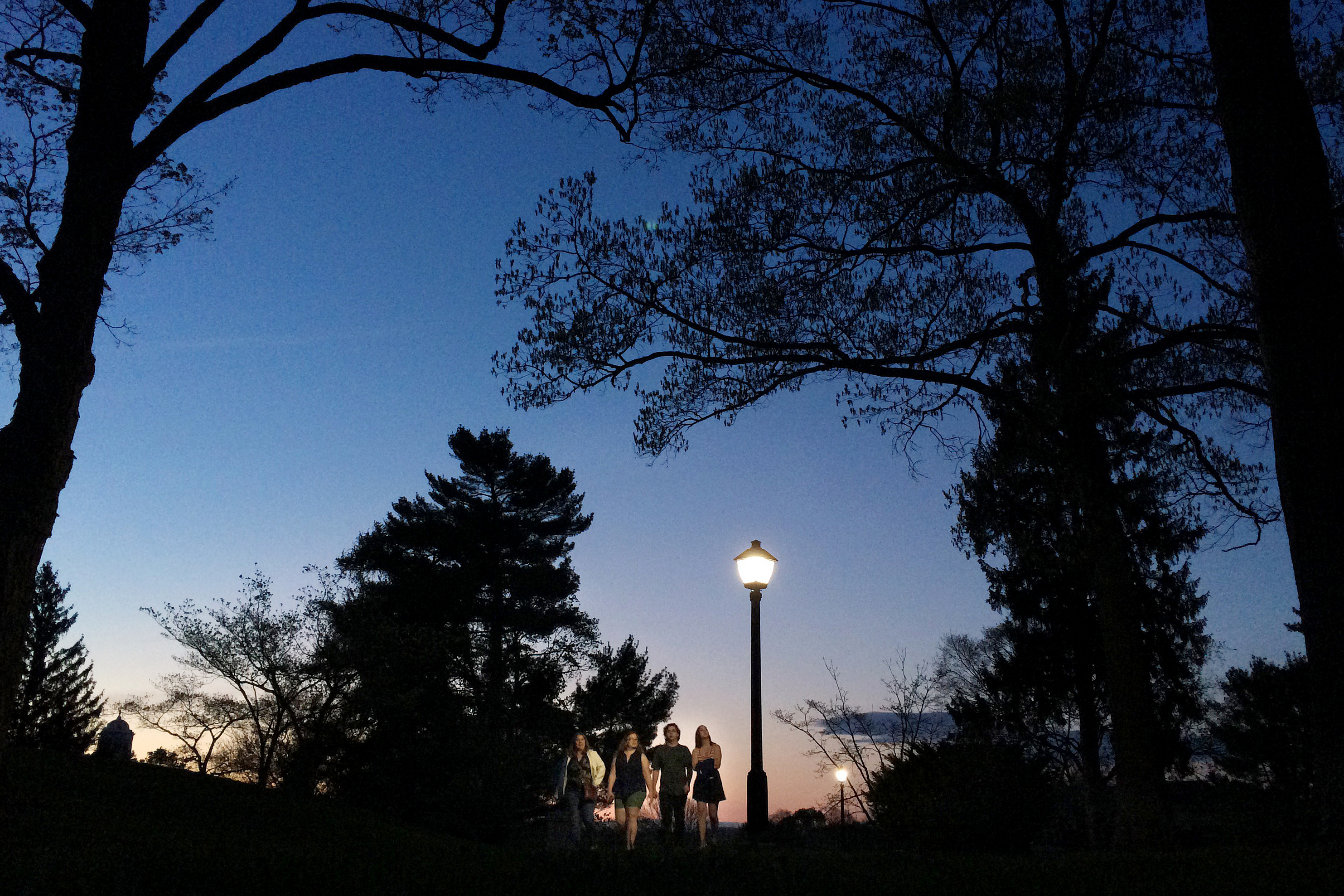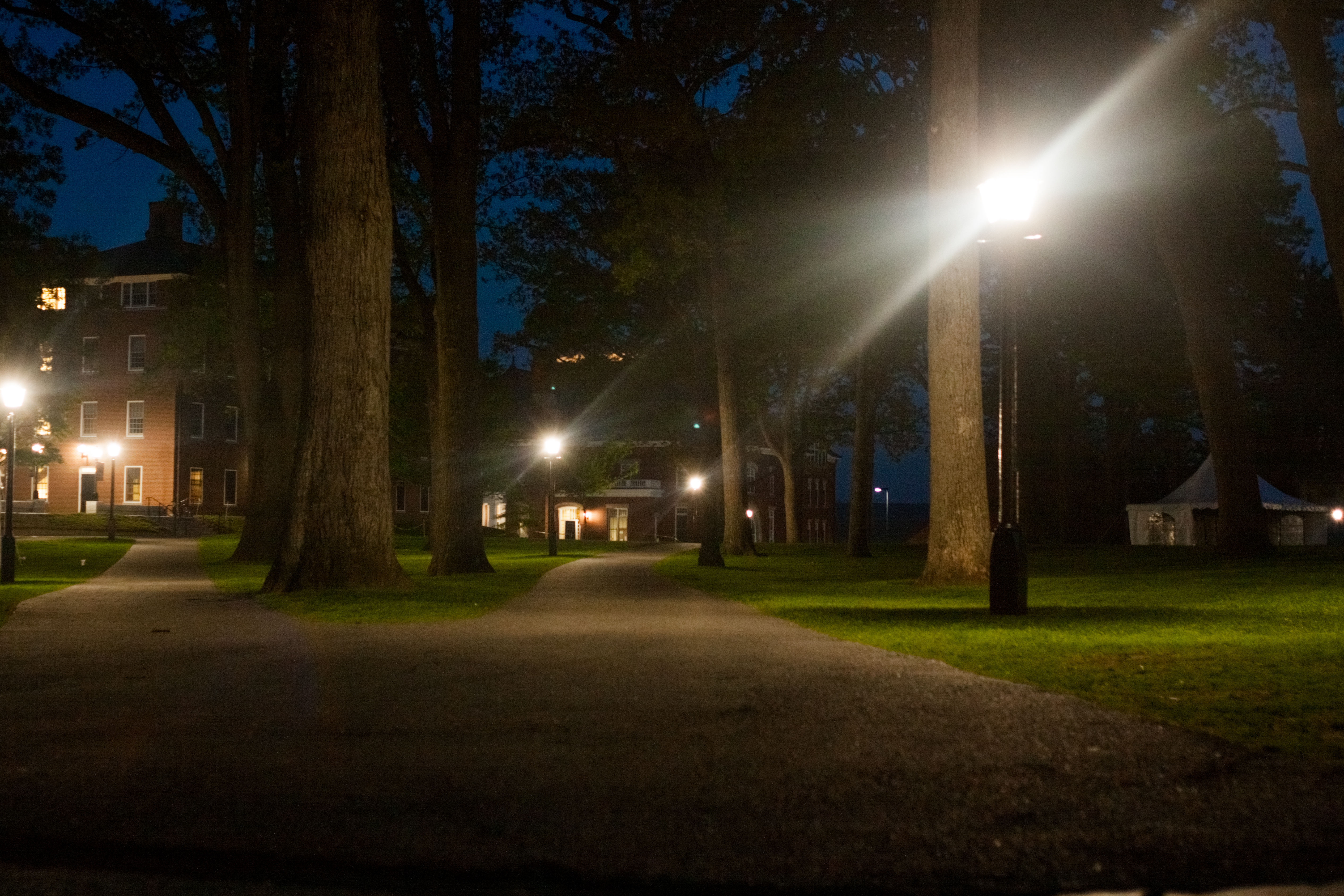Over the past 10 years, Amherst has made great strides in sustainability by building a co-generation power plant, switching to natural gas, expanding the College’s recycling program and using high-efficiency building practices in construction and renovation projects, among other things. But such progress has centered on college operations, where change isn’t always readily apparent. A new initiative is, though. Thanks to the generosity of an Amherst alumnus, the College has replaced its outdoor lights with more efficient and eco-friendly LEDs.

Jesse Brill ’64 helped fund the LED project as a way to commemorate his 50th reunion and honor his time at Amherst. “So many institutions are still using old lights. Switching to LEDs seems like a no-brainer. All the money goes back to the school and they save energy as well,” he said.
The Facilities Department began the project last spring. They met with the Amherst College Police to decide on a bulb with the proper color and brightness for safe lighting.
Since then, the College has replaced 458 older high-pressure sodium lights, which have a much shorter life span, with LEDs. The new bulbs will save $21,000 in energy costs annually, which will pay back their cost in three years. Because they have a much longer lifespan, the new LEDs will reduce installation and replacement costs, as well as garbage that goes to landfills.

“The LED Project is another example of how ecological sustainability can intersect with financial sustainability,” said James Brassord, chief of campus operations.
Amherst views its commitment to energy conservation projects not as a cost but rather as an investment, Brassord said. Initiatives generally pay for themselves within 2-3 years, after which they become a net gain for the College, even as they simultaneously reduce the College’s impact on the environment. The next step in ‘greening’ Amherst is making sustainable practices part of campus daily life, he added.
To that end, Amherst created the Office of Environmental Sustainability this past summer and hired its first director, Laura Draucker. The office has a number of plans for integrating sustainability initiatives into academic pursuits and creating opportunities for Amherst faculty, staff, students and alumni to participate.
For more information on how to play a part in sustainability at Amherst please contact the Advancement office at 413.542.5900.